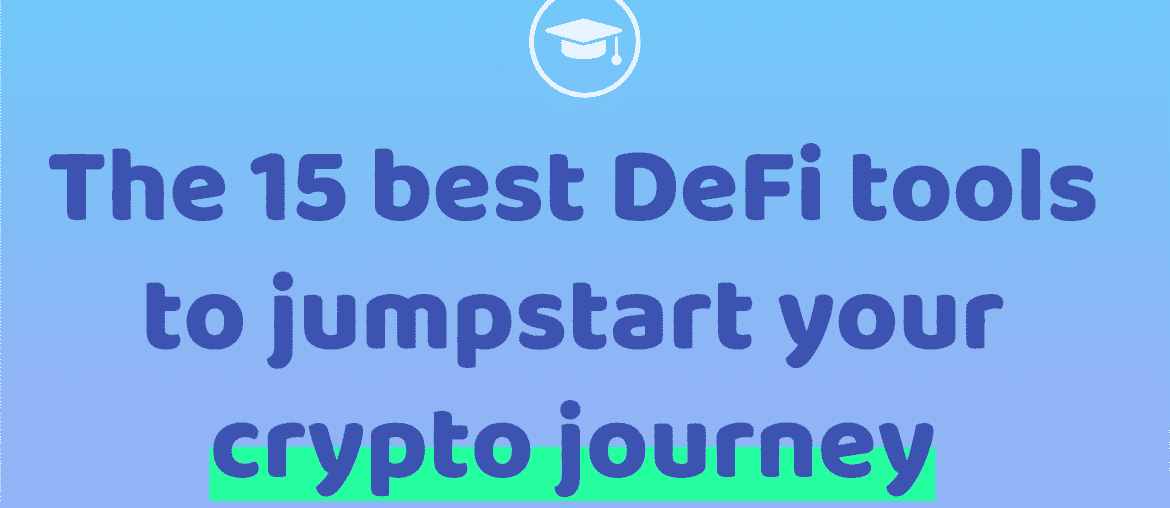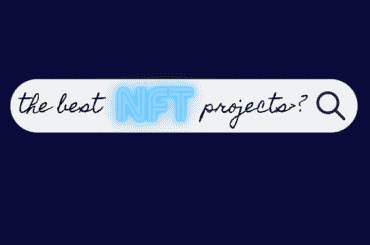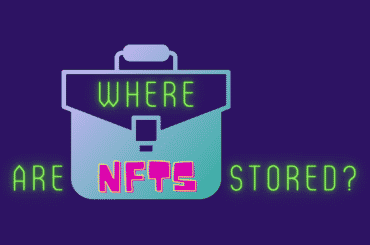When you’re investing in the cryptocurrency space, there’s a lot of unpredictability and uncertainty. With so many DeFi projects available, narrowing down which one is right for you may be difficult; the right tools will make your job easier. DeFi tools will help you analyze the DeFi ecosystem and find new opportunities to grow your portfolio.
Even though tools will give you a leg up with investing, it’s hard to compete in the crypto-trading space without developing an impactful strategy. There are a few strategies you can consider that will provide favorable returns but one, in particular, allows for low risk and substantial rewards.
Table of Contents
Crypto Arbitrage
Crypto arbitrage trading is a trading strategy that allows investors to capitalize on a slight price discrepancy of a digital asset across multiple markets or exchanges. In the simplest form, it’s the process of buying a digital asset on one exchange and selling it (almost) simultaneously on another where the price is higher.
Where this becomes interesting is when you realize that across different exchanges, you can buy and sell assets for different prices. This means that if you buy an asset for $50 USD from one exchange, and sell it for $60 USD from another, you have made $10 USD. This is how capitalizing on price differences can be a viable option for profit in crypto trading. It’s also known as digital asset trading or cryptocurrency trading.
Crypto Arbitrage Trading Strategies
There are several ways investors can profit off of market inefficiencies utilizing crypto arbitrage trading strategies;
Cross-Exchange Arbitrage:
This is the basic form of arbitrage trading where a trader tries to generate profit by buying crypto on one exchange and selling it on another exchange.
Spatial Arbitrage:
Spatial arbitrage is similar to cross-exchange arbitrage, but instead of exchanges being located in different regions within one country, they’re in different countries. If you think the demand for bitcoin is high in America but low in South Korea, you can exploit that by buying bitcoin in America and selling it in South Korea using spatial arbitrage.
Triangular Arbitrage:
This is the process of moving funds between three or more digital assets on a single exchange to capitalize on the price discrepancy of one or two cryptocurrencies. For example, a trader can take money in bitcoin (let’s say) and move it over to an exchange where their currency is cheaper, and then move that cashback to bitcoin, which in turn makes them money because there’s a difference between the prices on those two exchanges.
A trader could buy bitcoin on one exchange, trade it for ether on another, and then convert the ether for Cardano’s token — ADA. If there are discrepancies in any of the prices of the three crypto trading pairs, the trader will end up with more bitcoin than they had at the beginning of the trade. Here, all the transactions are executed on one exchange. Therefore, the trader does not need to withdraw or deposit funds across multiple exchanges.
Decentralized Arbitrage:
This arbitrage opportunity is pretty common on decentralized exchanges or automated market makers. If the prices of crypto trading pairs are significantly different from their spot prices on centralized exchanges, arbitrage traders can execute cross-exchange trades involving the decentralized exchange and centralized exchange.
Statistical arbitrage:
Statistical arbitrage is a way for traders to make a risk-free profit by identifying small pricing differences between securities in the same industry. They do this by relying on econometric, statistical, and computational techniques to find trading opportunities, create trading strategies and execute high-frequency trades. Trader bots are automated trading mechanisms that meet a high volume of trades at record speed while following predefined trading strategies.
DeFi Tools
An understanding of DeFi is especially important if you are looking to invest. Tools can help with everything from investment strategy — like yield farming — to asset management. If you’re relatively new to the crypto world, they can be a great way to jumpstart your DeFi journey and learn more about the technology.
MetaMask
MetaMask is a crypto wallet that interacts with the Ethereum blockchain. It’s a browser extension compatible with Google Chrome, Firefox, Brave, and Microsoft Edge, and is also available as a mobile app.
Once installed, MetaMask gives users access to a wide array of Ethereum-based dApps that allow them to buy, store, send, and trade all their digital assets — including NFTs.
It’s compatible with Compound, a lending protocol that lets users invest their crypto into liquidity pools for borrowers.
While MetaMask is easy to set up and use and its multi-DEX capabilities make it compatible across multiple DeFi platforms.
DeFi Llama
DeFi Llama is the most comprehensive TVL aggregator for DeFi. Open-sourced data ensures that up-to-date and accurate data is always available.
Its dashboard allows users to sort data such as total value locked and change in value over different time periods and tracks over 800 DeFi protocols across multiple blockchains including Solana, Binance Smart Chain, Ethereum, Avalanche, and Polygon.
DeFi Pulse
DeFi Pulse is known as the “decentralized finance leaderboard,” and allows you to find and track the most up-to-date rankings and metrics of DeFi protocols. The rankings track the total value locked into the smart contracts of an underlying DeFi asset — giving you the information on all the dApps and protocols that outperform the rest. The front page lets you sort by lending, DEXs, derivatives, payments, and assets.
This tool also compiles an updated list of best resources in DeFi, and runs a newsletter on industry news and trends called the DeFi Pulse Farmer, which is helpful for beginners.
Dune Analytics
Instead of querying Ethereum data through a specialized script, Dune Analytics does all the grunt work for you by aggregating raw numbers into databases that are easy to sift through and manipulate.
The software comes with predictive dashboards, but you can also design your own. Just make sure that you’re not exceeding the limit of three free queries. Pricing starts at $390 per user per month.
Coinbase Wallet
Most crypto enthusiasts are probably familiar with Coinbase, which is a well-known exchange. But the platform also has a separate, standalone product that serves as an Ethereum-based wallet for any kind of crypto you have; you can use it as a dApp browser and earn interest on your assets.
You don’t even need to be a Coinbase exchange member to use the Coinbase Wallet product. It supports the most popular cryptocurrencies, DeFi tokens, and NFTs, and it’s secure and easy to use — not to mention non-custodial.
DappRadar
DappRadar is a platform that allows you to manage all your wallets in one place. It also hosts industry overviews and tracks the space. Currently, games and finance categories each have millions of users.
They’re both global, but they serve different purposes. One of them tracks the crypto industry while the other tracks the daily life of people from all over the world.
Highlights:
* Top 3 countries for dApp usage on DappRadar are: United States, China, Japan
* Top 10 Devices for DappRadar are: IOS (70%), Android (20%), MacOS (10%)
*Most traded NFTs on DappRadar are Lumens(XLM), CryptoKitties(CK), OMG(OMG), Tron(TRX)
A lot of Android users use DappRadar, accounting for about 50% of users. Most people use IOS + Windows/MacOS/Linux, which make up 70% of users. The following NFTs dominate trading on DappRadar: Lumens(XLM), CryptoKitties(CK), OmiseGo(OMG), Tron(TRX).
Monolith
Monolith is a decentralized banking solution based on Ethereum. The platform is non-custodial, meaning that you have full control of your crypto funds through a private key.
The Monolith contract wallet pairs with Visa debit cards to allow for easy fiat currency exchanges in the app. The partnership with major global payment provider Visa gives the Monolith brand global recognition, and it is currently available across over 30 countries in Europe.
The Monolith token (TKN) gives holders a proportional share of the community’s contributions, encouraging growth in the functionality of the Monolith card and the population using it.
Argent
Argent is a platform that allows anyone to create cryptocurrency wallets. These wallets come with features such as “Guardians” and a “recovery procedure” and allow users to earn high returns on crypto-assets like yearn and aave. These Guardians are people and devices that help users protect their crypto wallets. They don’t have access to the crypto itself but can perform actions, like locking your wallet or approving a wallet recovery, for you.
Gnosis Safe
Gnosis Safe is a very popular cryptocurrency management platform. It offers multi-signature wallets with an impressive amount of customization for Ethereum smart contracts.
The platform allows you to store multiple cryptocurrencies on your hardware, paper, or web wallets. Users can combine these with Ethereum-based wallets (EOA = Externally Owned Account), and some combination of hardware, paper, or web wallets to create a more secure crypto custody system. More control means more responsibility — and security.
Zerion
The DeFi tool Zerion, is a decentralized finance tool that helps manage your cryptocurrency portfolio. With the platform, you can use the DeFi market to make all-in-one, non-custodial transactions related to yield farming, top gainers, and liquidity pools. The platform allows you to search and filter every single DeFi asset on the market by things like interest earned, performance over time, and investment criteria, as well as see your transaction history according to information such as the protocol, transaction type, or address.
Zapper
Crypto-finance platform Zapper added Monero (XMR) as one of its supported digital assets on its DeFi portfolio management service. Zapper is a feature-rich DeFi portfolio app with a Defi dashboard that lets users track and visualize their holdings in over 200 different DeFi platforms. It’s built with a simple, clean user interface for easy tracking of assets and a Learn section with articles and resources to help users learn more about DeFi concepts.
Debank
Debank is a crypto asset management service that provides analytics and information on various decentralized lending protocols, exchanges, stablecoins, and margin trading platforms.
The goal of the platform is to close the gap between (sometimes very complex) DeFi technologies and many potential end-users looking to get involved.
New features are added over time, and users can now track 695 DeFi protocols across 14 blockchains. Debank’s “Ranking” panel on its website’s dashboard allows for a scorecard feature for various categories and their relevant functions.
DeFi Saver
DeFi Saver is an asset management software focused on automation. Users can boost or reallocate their DeFi positions or cryptocurrencies based on the inputs they’ve predetermined. They can also combine these actions to create unique protocol transactions that execute when certain conditions are met.
DeFi Saver provides “everything you need in one app”, including:
- portfolio management,
- leveraged longs & shorts,
- loan refinancing tools,
- lending & borrowing,
- decentralized exchanging,
- and the aforementioned custom transaction builder.
Though its functionality may be more complex for the average user, DeFi Saver offers an expensive investment product. The platform partners with many of the most popular Ethereum wallets, including Coinbase and Metamask.
APY.vision
APY.vision hopes to be the go-to DeFi source for analytics and monitoring around liquidity pool providers and yield farmers in the crypto space.
The app lets users efficiently find the most profitable liquidity pools currently available in the market, and automatically calculates risk and performance metrics for them. Users can monitor their vault and farming activities – and clearly see the net profits accumulated on investments.
The platform is integrated with Automated Market Makers (AMMs) and chains such as Ethereum, Polygon, Fantom, Binance, Uniswap, Balancer, and more.
DEFIYIELD
To get started on DEFIYIELD, a platform that helps you manage DeFi access, enter your ENS (Ethereum Name Service) domain, or a valid ETH or BSC address — or connect your crypto wallet directly.
You can also track your portfolio, transactions, and pools through a complete dashboard view and choose between different DeFi tools so you can be as informed as much possible.
When you invest in DeFi, you’re guaranteed top-notch security with over 50 audits completed on various DeFi tools and 500+ vulnerabilities identified for investors to see.
RugDoc
RugDoc is a community platform for browsing and reviewing DeFi projects. You can use the site to search through and find DeFi projects and investment opportunities, filtered by risk, categories, and whether they have been audited (independently verified crypto investment experts). With RugDoc, you can scan through the entire DeFi ecosystem exactly how you want to.
Crypto Investments Open Up a New Access to DeFi platforms
Strategies are necessary to structurally invest and the many decentralized tools and asset management platforms make it easy to stay on top of those investments.
The various tools can help you make future investment plans by clarifying your current holdings and making them easier to organize.
As crypto becomes more popular and in some instances a necessity, we are guaranteed to see a rise in different tools needed to navigate decentralized exchanges and this ever-growing industry.





